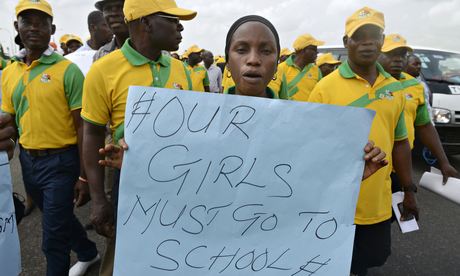Hypocrisy at the highest levels of our government? Of course. 
Nigeria went so far as to hire of big shop lobbying firm in Washington to beg for help in combating the radical Islamic group. What did the Obama administration do in response? NOTHING!
So then we see Moochele with her ridiculous stunt of calling for the CHRISTIAN girls to be returned. Why wasn't she concerned about that months ago?
So, you want the full story? Go to the ABC News site @ Nigeria Requested US Intel And Military Gear to Fight Terror, Docs Show - ABC News

Nigeria went so far as to hire of big shop lobbying firm in Washington to beg for help in combating the radical Islamic group. What did the Obama administration do in response? NOTHING!

So then we see Moochele with her ridiculous stunt of calling for the CHRISTIAN girls to be returned. Why wasn't she concerned about that months ago?

So, you want the full story? Go to the ABC News site @ Nigeria Requested US Intel And Military Gear to Fight Terror, Docs Show - ABC News






